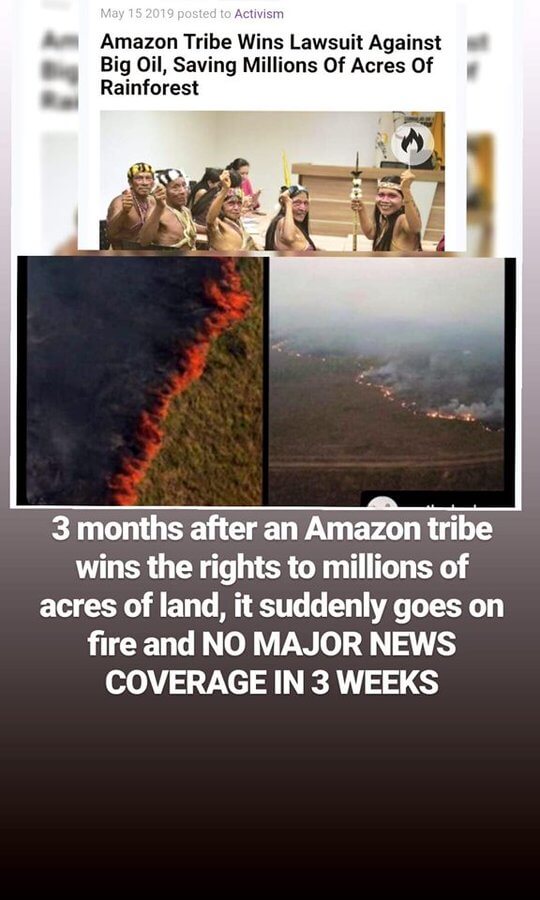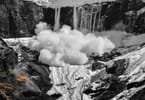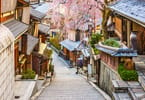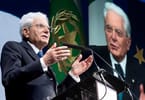Visitors in Sao Paulo have a new attraction, it’s unhealthy and it’s killing planet earth. This may very well one of the biggest disasters unfolding in the history of our planet. Consequently, it makes it not only an issue Brazilians army is now fighting but for all of us.
Starting around 3:00 m. local time on Monday, the skies above Brazil’s largest city went dark. The sun in São Paulo had been eclipsed not by the moon, but by a vast cloud of smoke that choked the coastal Brazilian city because the Amazon is on fire.
The world is alarmed. Tweets by eTN readers include statements like:
- When the last tree is cut, the last fish is caught, and the last river is polluted; when to breathe the air is sickening, you will realize, too late, that wealth is not in bank accounts and that you can’t eat money.
- Brazil’s President Bolsonaro must answer for this devastation. The Amazon creates over 20% of the world’s oxygen and is home to one million Indigenous people.
- What if Brazil told us to tear down our cities and replant the forests from the 1700s and 1800s and 1900s? Yes, rain forests are vital. Americans could also stop using gasoline and jet fuel.
- As the vital oxygen-generating rain forest burns, massive amounts of CO2 are released, so this is a double whammy. If the forest is gone, plan on taking one breathless out of each five. Humanity can not allow this to continue. A catastrophic tragedy of the commons.

tribebrazil
The fires ravaging Brazil’s Amazon rainforest are another reminder of why preserving them in the first place is vital. Monday’s blackout in São Paulo, 1,700 miles away from the rainforest, renewed worry across the region and inspired #PrayForAmazonia to trend.
The Amazon is burning. There have been more than 74,000 fires across Brazil this year, and nearly 40,000 fires across the Amazon, according to Brazil’s National Institute for Space Research. That’s the fastest rate of burning since record-keeping began, in 2013. Toxic smoke from the fires is so intense that darkness now falls hours before the sun sets in São Paulo, Brazil’s financial capital and the largest city in the Western Hemisphere.
Several news outlets report that Brazil’s National Institute for Space Research (INPE) documented an 80 percent increase in fires from last year. 9,000 of the 72,843 recorded occurred in the last week.
NASA was even able to capture images of the fires from space. With the Amazon forest fire at the forefront of conversation, let’s revisit the importance of rainforests in the fight against climate change.
n addition to the record number of rain forest fires noted by INPE, if left untended the damage could have dire consequences. Thomas Lovejoy, an ecologist and National Geographic Explorer-at-Large, tells the outlet that trees are sometimes burned to make room for cattle farming. Once the deforestation process begins, the area grows drier. As the number of trees decreases, so, too, does rainfall.
“The Amazon has this tipping point because it makes half of its own rainfall,” Lovejoy said. So if the rainforest gets dry enough, it could reach a point of no return. This would also heavily impact climate change and Earth’s ability to prosper in the future.
The cause behind the Brazil fire is a point of contention between many environmentalists and Brazil’s President Jair Bolsonaro. When Bolsonaro was asked about the fires, he claimed nongovernmental organizations were setting them in criticism of his leadership.
“The fire was started, it seemed, in strategic locations,” Bolsonaro said, per The Washington Post. he said. “There are images of the entire Amazon. How can that be? Everything indicates that people went there to film and then to set fires. That is my feeling.”
But Ricardo Mello, head of the World Wide Fund for Nature’s Amazon Program, tells the Post that it’s “very naive” for Bolsonaro to deny some of the more likely causes.
Christian Poirier, program director of the non-profit organization Amazon Watch, told CNN that farmers clearing the land for agricultural reasons is the likely source. “It’s the best time to burn because the vegetation is dry,” Poirier tells CNN. “[Farmers] wait for the dry season and they start burning and clearing the areas so that their cattle can graze. And that’s what we’re suspecting is going on down there.”
Many scientists and environmentalists agree that rainforests are one of the best defenses against the threat of climate change. The Amazon forest is often referred to as “the planet’s lungs.” It alone produces about 20% of the world’s oxygen and assists in reprocessing carbon dioxide, per Express.
Vegetation in the Amazon absorbs the harmful carbon dioxide, which is vital. The World Wildlife Fund says that if the rainforest is irreversibly damaged, harmful carbon monoxide could be inhaled instead. Express also notes WWF’s findings that”without tropical rainforests, the greenhouse effect would likely be even more pronounced, and climate change may possibly get even worse in the future.”
Per WWF, rainforests also regulate climate and plants within them have proven medicinal benefits. The Amazon is also home thousands of species and edible plants that would seize to exist if the forest fires continue.
On Sunday the Brazilian president said, the situation is almost back to normal. WOW!
WHAT TO TAKE AWAY FROM THIS ARTICLE:
- The sun in São Paulo had been eclipsed not by the moon, but by a vast cloud of smoke that choked the coastal Brazilian city because the Amazon is on fire.
- With the Amazon forest fire at the forefront of conversation, let’s revisit the importance of rainforests in the fight against climate change.
- Toxic smoke from the fires is so intense that darkness now falls hours before the sun sets in São Paulo, Brazil's financial capital and the largest city in the Western Hemisphere.





















